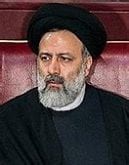VOA – Last year, U.S. President Donald Trump labeled Iran’s elite Islamic Revolutionary Guard Corps (IRGC) a foreign terrorist organization, an unprecedented move that marked the first time the United States had formally named another country’s military terrorists. Experts said then that the decision would likely raise to a higher level the strained relationship between the two countries.
Here is a look at the history of the IRGC:
Iran’s Revolutionary Guard Corps, known in Iran as Pasdaran, was founded in April 1979 shortly after the Islamic Revolution and the overthrow of Iran’s pro-Western monarch Mohammad Reza Shah Pahlavi.

The IRGC’s core task, as mandated by the late Supreme Leader Ayatollah Khomeini, is to protect the country’s Islamic system and revolutionary values.
“In principle, the Iranian state could eventually reform itself outside the bounds envisioned by that revolution, in spite of the numerous constitutional safeguards Khomeini set up, to include clerical oversight of the elected government,” said Brad Patty, a former U.S. army adviser and analyst. “In practice, the IRGC exists to ensure that never happens. The population of Iran may wish what it will, but they are meant to live in terror of the IRGC.”

Structure
The IRGC today has become a major military, political and economic player in Iran, with an estimated 150,000-strong military consisting of ground forces, navy and air units. It is also in charge of the country’s ballistic missiles and nuclear programs.
Organizationally, the IRGC falls under the Joint Armed Forces General Staff as a part of the Ministry of Defense. But the military remains subordinate to Supreme Leader Ali Khamenei, with elected civilian authorities exercising no real control, according to the international policy organization Counter Extremism Project.
Internally, the IRGC also commands the Basij Resistance Force, a religious volunteer group that channels popular support to the regime and suppresses domestic dissent. The paramilitary force monitors compliance with the country’s strict customs, such as arresting women who violate the regime’s public dress codes and raiding Western-style parties where alcohol may be served.
Externally, the IRGC uses its shadowy Quds Force, that was led by Maj. Gen. Qassem Soleimani, and proxy Shi’ite militias, such as the Lebanese Hezbollah, to extend its influence across the Middle East and beyond.
International activities and ties
The elite Quds Force was created during the Iran-Iraq War in 1980 and has about 15,000 personnel.
The group has been involved in Middle East conflicts for decades either directly or by providing support to pro-Iranian militias and governments, particularly in Lebanon, Syria, Iraq, Yemen, the Palestinian territories and Afghanistan.
More recently, the Quds Force was crucial to the Syrian civil war by supporting President Bashar al-Assad against the rebels.
In Iraq, the group played a key role in helping the Shiite-dominated government in the fight against IS and thwarting a Kurdish bid for independence.
The Quds Force is also considered the lifeline of Houthi rebels in their struggle against the internationally recognized government in Yemen.
World designations
The U.S. designated the Quds Force as a supporter of terrorism as early as 2007, followed by Canada in 2012. Saudi Arabia and Bahrain, two key neighboring rivals to Iran, designated IRGC a terror entity in 2018.
The United Nations and the European Union have refrained from designating the IRGC as a terror entity but have blacklisted key individuals of the force, including its leader Qassem Soleimani.
 Shabtabnews In this dark night, I have lost my way – Arise from a corner, oh you the star of guidance.
Shabtabnews In this dark night, I have lost my way – Arise from a corner, oh you the star of guidance.


